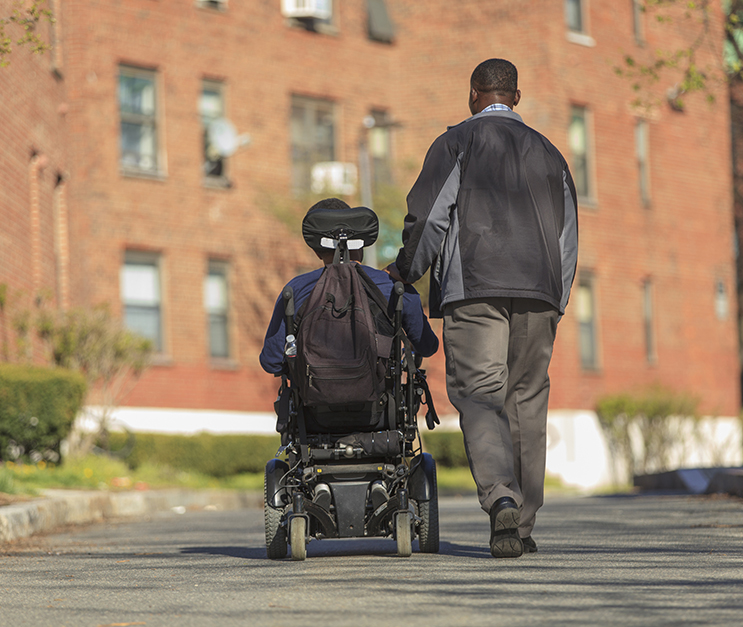As I said before, social distancing precautions have made the lives of people with disabilities (as well as their primary caregivers) 10 times harder. If people do get support services during this time, it is simply a daily phone call. However, as this article in The Guardian states, people have had their care services put on hold due to restrictive policies of social distancing and are suffering as a result. People with disabilities such as autism often have physical and emotional needs that cannot often be met over the phone or web based platforms such as Zoom. I remember when my state issue a stay-at-home order, I had to discontinue outings with my companion for a month and a half. The only way we can communicate is through FaceTime and texting. Though I was happy to talk over the phone, I did not get the same emotional benefit like I did through our in person outings in the community. I was happy when my support worker agreed to finally meet in person again. In this case, I am very lucky and grateful that my companion agreed to continue in person services but for many others this is often not the case.
Another issue is that people who live in assisted living facilities such as group homes cannot have visitors including family members in order to protect its' most vulnerable residents. However, parents are reporting that their children are suffering from regression due to not providing in person care and comfort. Family members are also part of the "checks and balances" to make sure the group home is taking care of their loved ones adequately. With family members not being allowed to visit can allow signs of abuse to go undetected in their loved one with a disability as they have to rely on the hands of the staff that work in these homes.
Another example of how social distancing protocols has created unecessary inconveniences in terms of paid services, is that one of my support workers who is supposed to do community activities with me is not allowed to transport me in her personal car according to the agency's policy. In order for us to meet in person, my mom would have to drive me to meet the support person or we can take the local Paratransit system which I believe the latter is less safe from infection than riding in a personal car. We've asked if we can get a waiver to transport me if we both employ basic safety precautions (e.g. using masks), but we we're told no. What is frustrating about this situation is that this decision did not take into account of my individual needs and the "all or nothing" approach that was utilized. Since the support worker cannot transport me, we are limited in what activities we could do. Since this has created so much inconveniences on my mom and me, I am left to wonder if I should put the service on hold until she can provide transportation services for me.
You may be wondering what ideas or solutions would be effective to address the issue and challenges that disabled people face as a result of not receiving paid in person services during the pandemic. I think a great first step is recognizing the value of direct support professionals as essential workers. These individuals provide physical as well as emotional supports to clients with disabilities and for some are the only source of support. Another idea that comes to mind is having clients as well as caregivers sign waivers allowing in person support. By doing this, both the support worker and the client accept the risk of possible COVID-19 transmission if they want to resume or continue in person services and therefore prevent further routine disruption and deterioration of physical and mental health. Of course, proper safety precautions (such as masks) should be employed by both parties if services are to be conducted in person. I feel these suggestions are a happy medium of ensuring safety but also making sure that people with disabilities are getting their needs met. I understand that there are some disabled people ( as well as caregivers) who are considered medically fragile or live with someone that is vulnerable and are afraid of getting infected. However, I feel this should be a decision on the individual level not on a systematic level . For people with disabilities who are not medically at risk, the halting of paid supports can take a toll on physical and mental health from unmet needs. We are already feeling isolated before and during this pandemic due to cancellation of social activities. It is frustrating that government officials continue to overlook the needs of the disabled population.

This comment has been removed by the author.
ReplyDelete